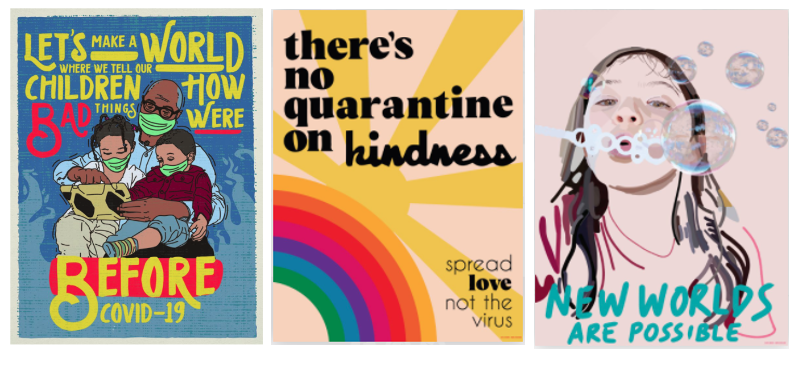5.12 The Final Pulse Of Covid-19: One Last Look At The Trends Of The Week (for now)
We can’t believe it’s been nearly two months since we started this newsletter. So much has accelerated in this ‘groundhog day’ existence, and yet we see a downshift as businesses start to steady themselves for the long-term marathon we described last week.
This week, we were inspired by these poster artists featured above, especially the idea “let’s make a world where we tell our children about how bad things were before Covid-19.” Thus, we’ve decided to highlight the ways businesses are positioning themselves to sprint ahead, the cultural taboos that were questioned during this time, and macro-shifts in consumer behavior and overall optimism.
We’ve also decided as we downshift to the next normal that this will be our last newsletter for a while. In case it’s useful, we’ve made a PDF of all previous newsletters (just DM me, and I’ll send you the attachment) and even added a timeline at the bottom of the email to track the trends overtime.
Finally, we’ve found from our recent study that 93% of Americans are interested in non-COVID-related content — are you one of them? We’d love to hear from you what we should do next with this newsletter, please take this super short survey.
As always, we’ve woven Harris’ latest data throughout the trends, highlighted in bold.

Businesses Positioned To Sprint Ahead: In a two-month period, business leaders have transitioned from ‘filling the gaps,’ to ‘action heroes,’ to ‘zonkey hybrids’ and finally into ‘marathoners’ in it for the long-haul, proactively seeking opportunities to sprint ahead in the future as we settle into the next normal. In fact, according to our bi-weekly study with PwC, the COVID-19 CFO Pulse Survey, 72% of CFOs say the pandemic will cause their company to have ‘better resiliency and agility’ in the future. Sowhat’s getting businesses prepared to sprint ahead?
- A sanitized supply chain: Amazon CEO Jeff Bezos tells “investors to take a seat” as they reinvest $4B back into improving the health and safety standards of their employees with the potential to create an industry differentiator of the first ‘sanitized supply chain. At the same time, Amazon imagines providing its almost 900K Amazon sellers health insurance and Amazon Care partnered with The Gates Foundation to distribute at-home coronavirus assessment kits. Americans are bullish on the future of Amazon, as 83% predict Amazon will be in a better position post Covid-19.
- Prioritizing serenity across the workforce: Starbucks quickly pivoted into 100% drive through to protect employees, offered 30 days off and 20 mental health sessions to all employees. HBR highlights ways CEOs today can support employees’ mental health amidst this pandemic. In reaction to the stress facing parents working from home, Google and Microsoft gave out between 12–14 weeks of additional parental leave.Meanwhile, Brian Solis says from now on every company should consider itself a digital healthcare company. Americans are also bullish on Google (76%) and Microsoft (75%), predicting they will be in a better position Covid-19, while 61% are bullish on Starbucks (although that number jumps to 71% for their prime audience: Americans ages 35-49).
- Collaboration over competition:Apple & Google are building an anonymous beacon system to launch in May that will work on every smartphone (on an opt-in basis).
- Redirecting supply Chains: Kroger buys and redirects dairy farmers’ excess milk to food banks. Panera pivoted to selling groceries in less than 3 weeks, and Migrant Kitchen became NYC’s largest restaurant-quality cooking operation, serving 6,000 meals a day 64% of Americans also predict Kroger will be in a better position post Covid-19.
- Never ending scroll: Personalized content and growing subscriber bases continue to rise. In the last two months, Netflix has released Netflix party, added 16MM subscribers, outpaced its rivals, is working on 200 pieces of content remotely, created a $100MM relief fund, and landed the first theatrical release to Netflix deal. Meanwhile, TikTok has increased its base from teens to major news publications (e.g. Washington Post and CNN) to Dame Judy Dench, resulting in over 2 billion downloads. 79% of Americans predict Netflix will be in a better position post Covid-19, while 73% of Young Americans say the same about TikTok.
Taboos Questioned: In two months, this pandemic has accelerated huge social experiments that were once seen as taboos or ‘nice ideas’ into realities for many Americans. The results are fundamental perceptual and behavioral shifts that will have long-term implications around what life should and will look like post-crisis.
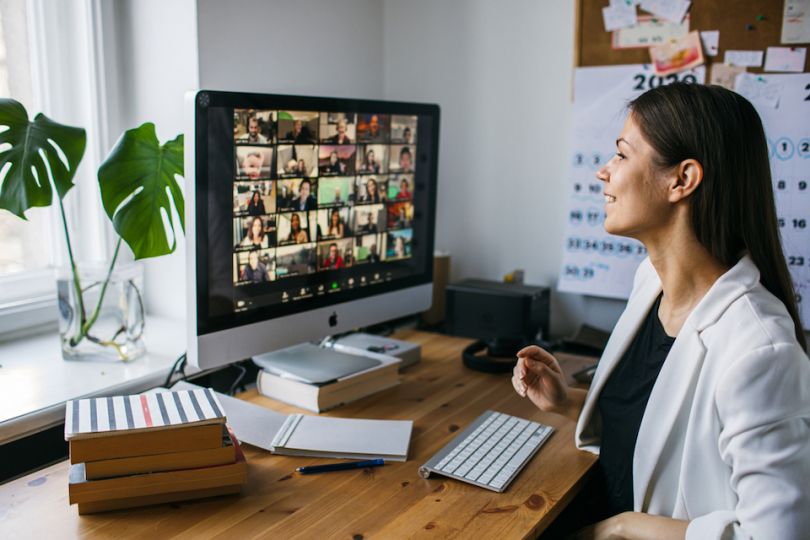
Taboo: Remote working not a practical solution
Today ⇨ Flexi-Work For All: In less than two months, companies have shifted into remote working and are seeing real value in incorporating more flexible workplace strategies in the future. According to our bi-weekly study with PwC, COVID-19 CFO Pulse Survey, 68% of CFOs say crisis-driven transitions to remote work will make their company better in the long run. And over 4 in 10 (43%) report their company is planning to make remote work a permanent option for roles that allow it.
- In fact, JPMorgan reported traders were able to handle as much as three times the normal trading volume in the first quarter, even as 90% of the corporate and investment bank’s staff worked from home, and Barclays says this could be the end of physical locations for company HQ. Meanwhile, Google and Facebook are allowing all employees to continue working remotely throughout 2020.
- In fact, as Quartz points out, WFH policies can contribute to high impact climate change outcomes (e.g. less commutters, less traffic, less travel, etc.) and reduce wasted time, as the average American who drives to work spends 54 hours per year stuck in traffic.
- From our research with Zapier, we found that WFH has it’s benefits as 65% of Americans who have been working remotely feel their productivity has increased, 80% said they can better manage interruptions from coworkers, and 80% enjoy being able to see their family during the day while working from home.
- Even though parents are struggling without childcare/school today, about half desire a more flexible WFH future. 83% of parents were working in offices before Covid-19 (vs 66% of non-parents) and when they think of the future re-opening, 50% want either more flexibility (e.g. only working a couple of days from the office) or want to work from home until it’s completely safe to be close proximity to others.

Taboo ‘Church & State’ separation of work life vs parental life
Today ⇨ Embracing Whole-Self Employees: After two months of WFH, there is no more putting the genie back in the bottle, parents will refuse to go back to the workforce and pretend they aren’t parents.
- NYT highlights raising children isnot just a personal choice, but a societal need, and what we really need to focus on is the ‘overwork pandemic,’ not the parents who can’t find a balance.
- Women are now the most essential workers in America, and experts argue that this two month period of mothers and fathers working side-by-side at home may lead to a gender role reversal, a shift in gender dynamics in both firms and families, and a shift in domestic duties at home.
- And it’s to be noted, Dads are trying their best. From our research, we see that dads are more likely than moms to say they have given in to more screen time (56% dads vs 48% moms), rely on more treats/snacks to keep my kids happy (45% dads vs 37% moms), and buying more toys, books or games (40% dads vs 24% moms).
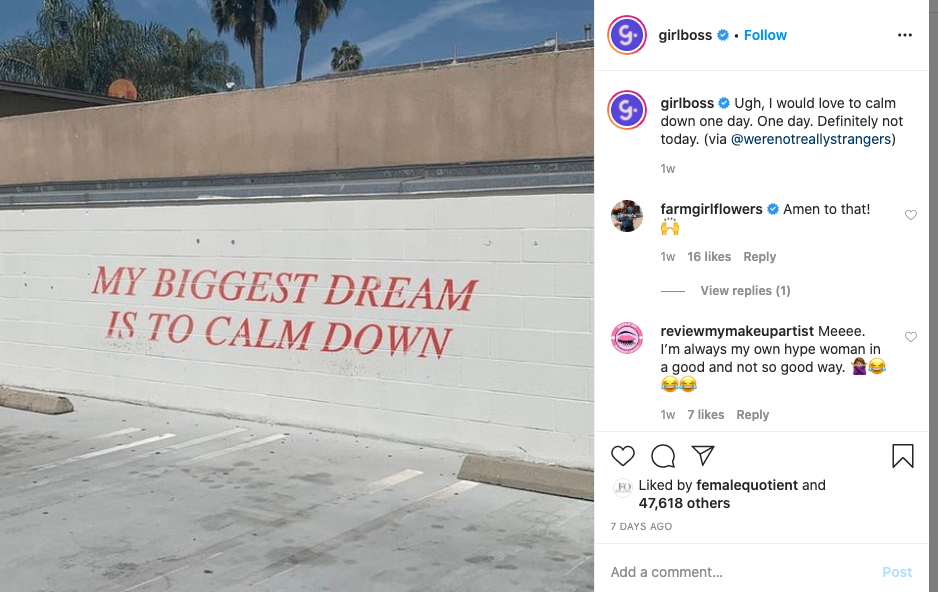
Taboo: Productivity propaganda
Today ⇨ Drawing New Boundaries For Happier Lives: Do more, be more, and show off more of who you are: this productivity propaganda has been a cornerstone of our cultural beliefs for at least the past decade, but it’s also been creating an epidemic of burnout across the population. In fact, last year with Meredith we uncovered that 3 in 4 American women were suffering from burnout and 81% said that ‘American society glorifies being busy.’ Now all Americans are pulling back and reflecting about where their productivity really comes from.
- Many people say this pandemic provided a much needed break in their lives, especially parents and young Americans. 60% of parents and 58% of young Americans (18-34 yrs old) said they are ‘grateful for the break from work to be at home with my family’ (vs 46% of the general population).
- While healthy habits have been embraced during the pandemic, we see people are cooking more, eating more fresh meals, meditating more, exercising more, and spending more time with the family, which ultimately will probably make healthier people and likely more productive thinkers. And new rituals are also being created that are good for the body and soul, such as these kids that transformed into restaurateurs to give their parents a once a week ‘date night.’
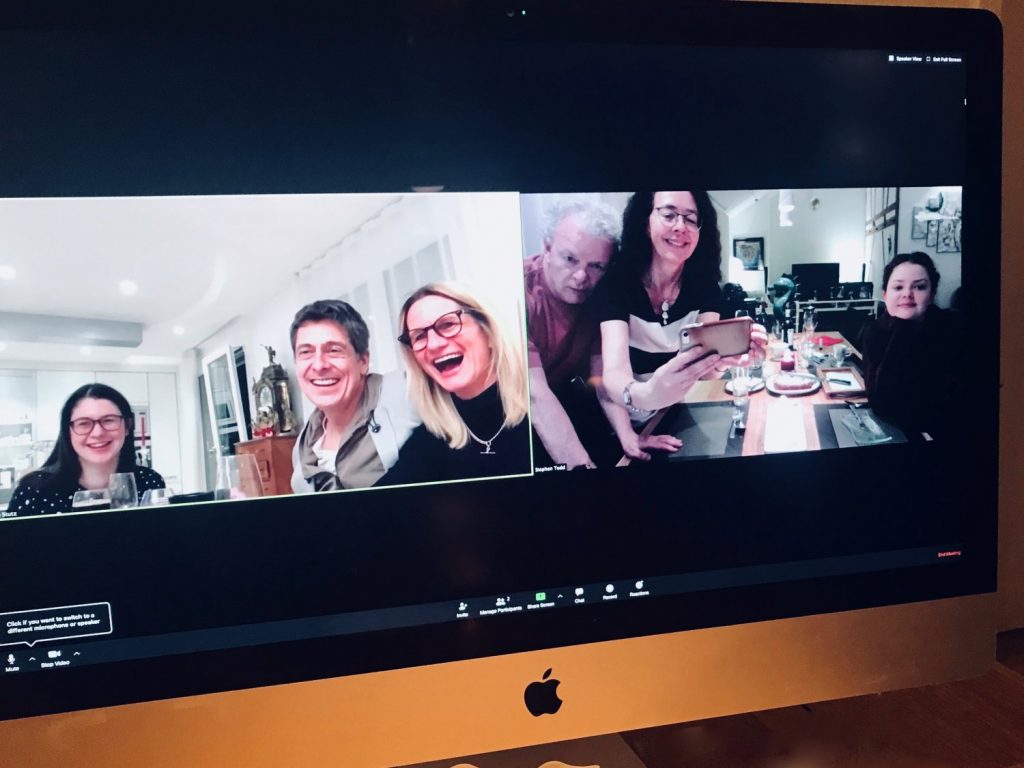
Taboo: Tech-Lash, rising backlash against tech and social media platforms
Today ⇨ Tech’s Purpose Reignited Around Togetherness: In 2019, we saw a huge rise in tech-lash due to concerns over privacy, social isolation, and alt-news. However, during this crisis, big tech has been repurposed as a bloodline, bringing us closer together and re-introducing us to our neighbors and communities.
- In the past weeks, we’ve seen the dawn of virtual dinner parties, senior book clubs, house parties, nightclubs, strip clubs, wine tastings, cooking classes, and google docs rallying neighbors around each other, among so many other virtual channels of connection. Our research shows 38% of Americans say their view of the tech industry has become more positive since the start of the outbreak, placing the tech industry in the top five industries that have seen positive shifts since the pandemic.
- Technology platforms have brought together the best and the brightest to fight Covid-19, from NASA’s first global virtual hackathon to scientists across the global working more closely than ever on more than 200 clinical trials.
- Our data shows that even after “things go back to normal,” 67% of Americans are now more likely to have a virtual happy hour with friends vs going to a bar (33%), nearly three quarters (73%) are more likely to live stream sports at home vs attending live in person (27%), and nearly 8 in 10 (79%) are more likely to watch a movie at home vs going to the movies (21%), even though over 4 in 10 miss going.
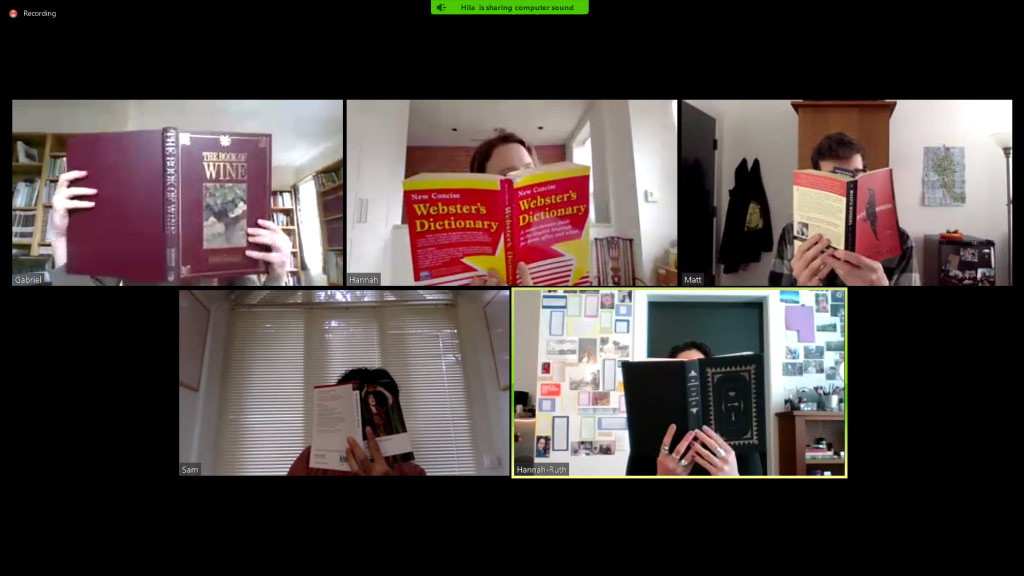
Taboo: Higher education costs outpacing students ability to pay for college
Today ⇨ Higher Education Revalued & Democratized: There has been a rising reassessment of the extraordinary costs parents and students pay for education, and now there is a growing opportunity to flatten the gap between our brightest teachers and resources through remote learning.
- Scott Galloway predicts the post-pandemic future will entail partnerships between the largest tech companies in the world and elite universities (e.g. MIT@Google. iStanford. HarvardxFacebook), and right now you can take over 450 free courses offered by Ivy League colleges online. In 2019, edtech investments soared past $18.66 billion but now are projected to reach anywhere from $350-400 billion by 2025. This might be the tipping point of democratization and a new approach to think about financing college, especially as student debt rose to $1.6 trillion dollars.
- And today’s college students facing huge bills and tuition costs are asking for refunds as Zoom classes alone can’t justify tuition prices ranging from $40K-$70K. In fact, by this fall, it’s predicted that undergraduate enrollment for four-year institutions could decline by 20%.
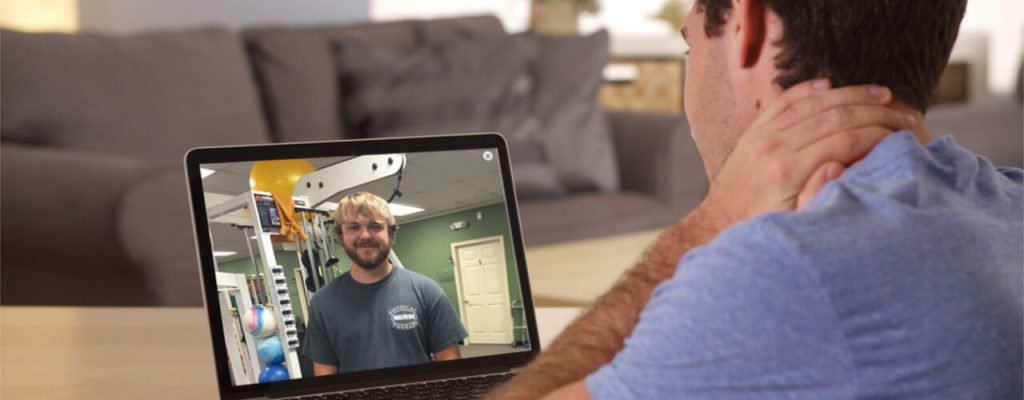
Taboo: Telehealth is a distant future
Today ⇨ Telehealth Transformation Is Here: Telemedicine was always seen as that platform that was a bit untouchable: how would it work, who would figure it out, etc.? But now, in light of current realities, we might have entered a world of wondering why we ever waited in the doctor’s office.
- From our latest research we see nearly a third (32%) of Americans have tried telehealth, with 15% now using telehealth for the first time during the pandemic. Over 8 in 10 (82%) of those who have used telehealth services say they love/like it. Even nonusers find the idea of telehealth services appealing with six in ten (61%) saying they like/love the idea of using telehealth services. Of those using telehealth during the pandemic, three quarters (76%) are very/somewhat likely to continue using these types of services.
- During Q1 of 2020, global VC funding in digital health firms hit a record $3.6 billion, pumping fresh capital into those now confronting the pandemic head-on. FutureLoop audience predicts Apple will lead in-home healthcare practices by 2026. Meanwhile, the FCC funded a $200M telehealth initiative during this timeframe, Forward launched ‘Forward At Home’ COVID-19 at-home-kit, and companies like Uber partnered with telehealth company Ro to offer free health screenings for drivers.
Macro-Lifestyle Implications: As taboos are taken off the table, major lifestyle shifts are happening overnight, these are the trends we plan to watch as we continue through 2020 and beyond:
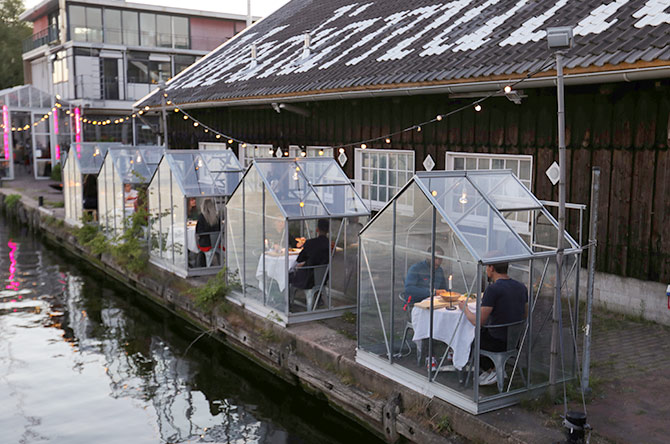
- Sani-Lux will replace pure convenience: Ultimate luxury will be seamless transactions and services that over deliver on everything that reflects sanitization. While in the general market, consumers will face more trade-offs between convenience, sanitization and price. There will be new signals of sanitization such as individual capsule-like dining, sneeze guards between airline seats, ‘hygiene managers’ and the implementation of digital lines so you don’t have to wait close to other customers. Airlines and hotels will only be deemed as high quality as their policies or ‘clean certification’ (unlike United who recently filled middle seats).
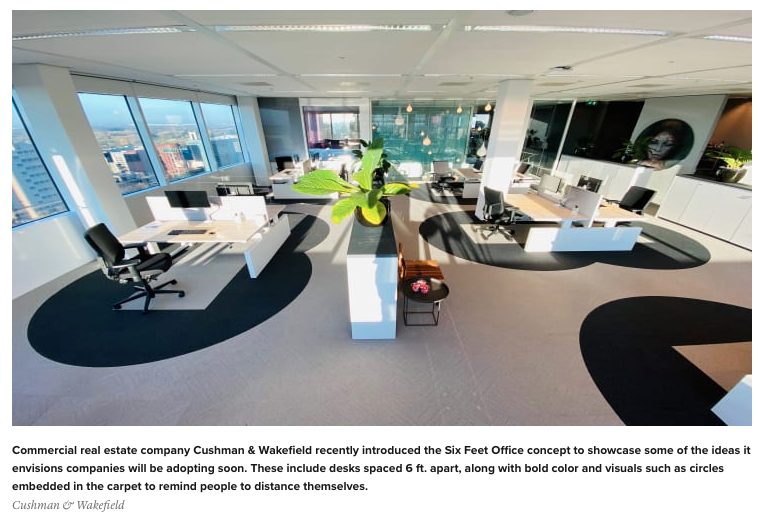
- Open offices shift towards spaced-out-serenity units: As WSJ documents, the future of office space will be a mix of musical chairs, one person elevators, and one way hallways until there is a solution for Covid-19. And this change is reversing decades long push for ‘open office’ design. Ultimately, this might be a good thing, as many studies pre-Covid highlighted the productivity drain of open office environments for all workers, and especially women. From our data, we see 61% of people are concerned about going back into the office, but that number has decreased by 4% from last week. And from our PwC study, two-thirds of CFOs are “very confident” their company can create a safe workplace for employees to return to work.

- A beauty break, self-care prioritized over everything: During these last two months, people have basked in the glow of not-giving-a-crap about their appearance, while reprioritizing their more superficial beauty habits into interfacing wellness habits. In fact, LA Times writer Jessica Roy, says, “I have been blissfully, gleefully throwing off the shackles of worrying about what I eat or how much I ate or whether I’ve made it to spin class recently. Prioritizing a gentler style of self-care moving away from punishment to movement, sleep, and meditation.” We saw the polish come off celebrities as they went make-up less, joining the 48% of women who say they aren’t applying makeup at all right now. Virtual skincare consultants are telling consumers they need less products, while make-up sales have gone down by 22% and beauty filters have gone up. Many are prioritizing self-care habits, with 25% of Americans using more wellness apps (e.g., meditation, fitness apps) since the outbreak, including 36% of parents.
- DIT (Do-it-together)- DIY challenges at the core of emerging communities: Similar to 2008, but accelerated due to additional free time, tastemaker communities are popping up overnight based on their ability to teach each other a skill, become more self-reliant, and connect over self-made creations. Whether it’s the rise of sourdough bread makers, community cookbooks, fitness fanatics, a sewing army making face-masks, or creative parents crowdsourcing new activities for quarantine, this is a trend we see only gaining in popularity. In fact, this week alone as spring starts we see the rise in the quarantine garden- seeds are the new sourdough.
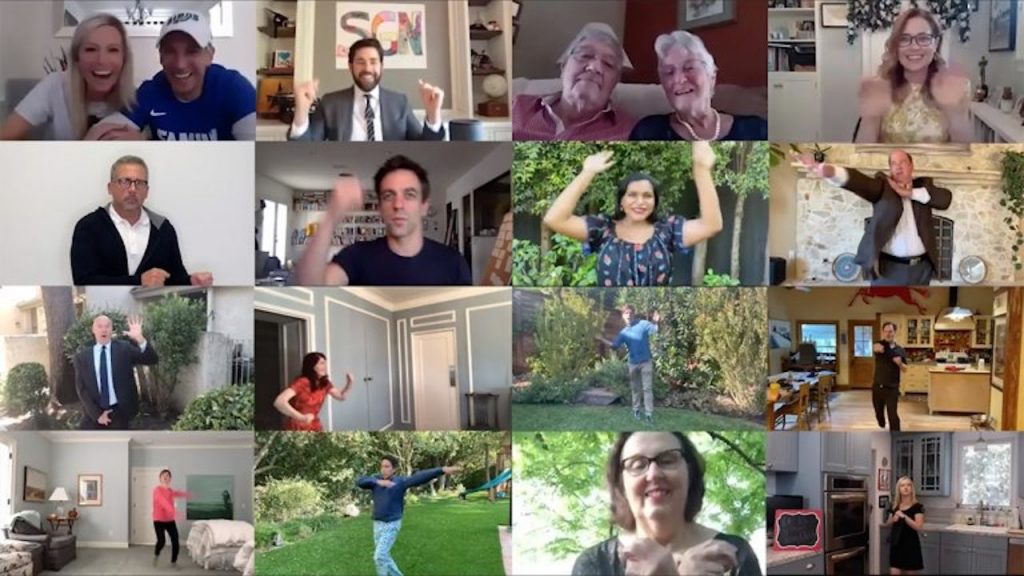
- Restrictions Fuel Creativity: In a two month period, all late night entertainment was rewired to be filmed from home: SNL figured out how to produce its entire show remotely, which actually gave the show a new life. John Krasinski launched Some Good News, featuring top notch celebrities and even reunited “The Office” cast for a Zoom Wedding. Musical festivals pivoted virtually to draw millions of fans to concerts on platforms such as Twitch, Minecraft, and YouTube. Both Netflix and CBS are producing series and episodes remotely.
Macros Moments Of Optimism: During this time, we’ve seen – and continue to applaud – an outpouring of compassion and a resilience of human spirit. Here are a few of the highlights:

- Frontline workers are gaining the respect and gratitude they’ve always deserved: NYC erupts every night at 7pm in horns, screams, and gratitude claps. Essential workers are up for bills in the Senate aimed at almost$2K in pay raises and $25,000 in student debt relief. Nike donates thousands of sneakers designed exclusively for healthcare workers’ 12-hour daysand JetBlue donates 100,000 roundtrip flights to healthcare workers.
- We can dramatically impact the quality of our climate: We’ve witnessed air pollution reduced quickly and radically across the world.We’ve seen the largest Arctic ozone layer close. We’ve seen cities likeSeattle and New York propose permanently close streets to make room for more green spaces. We’ve seen as many as 2.6 billion metric tons of carbon dioxide emissions prevented from being released—about 8% of what was the estimated total for the year. We’ve seen for the first time, renewable energy in the US generated more electricity than coal on every day in April 2020. We’ve seen Americans become more open minded about meat alternatives; in fact, 58% of Americans say they plan to eat more meat alternatives during the rest of 2020. And ESG investing has shined during this recent market turmoil, suggesting social responsible investing has long-term staying power.
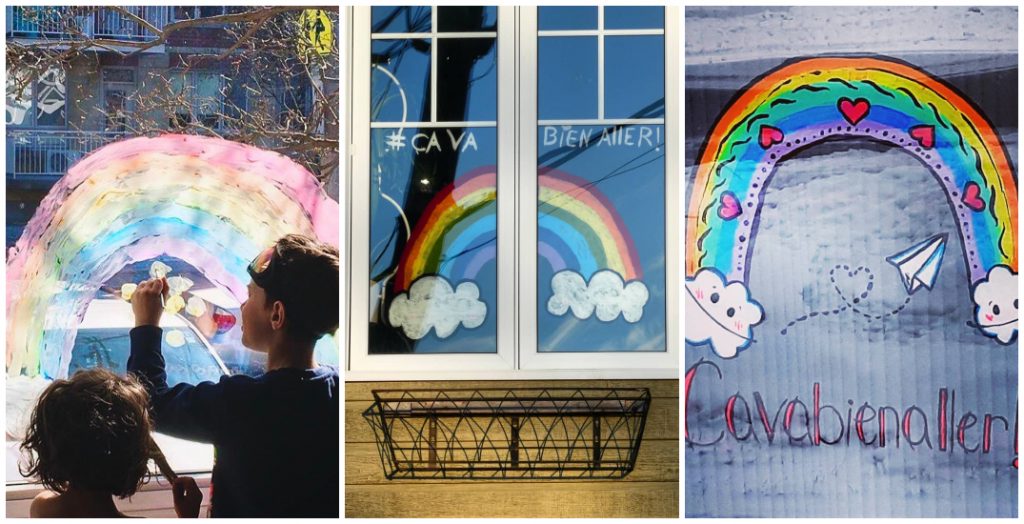
- Hope continues to drive us forward: 76% of Americans who have donated to a new charity during this time say they plan to keep doing so. Fromrainbows of hope, to bad dad jokes, to empathetic movie theater signs, Americans want to see stories of hope and inspiration (41% and 39%, respectively), like this artist at age 107 who beat both covid-19 and the spanish flu. According to the authors of The Longevity Project, those who live the longest“didn’t see their stress as meaningless — it seemed to fuel them. And this ability to think about the hard things we go through as ultimately beneficial — whether to ourselves or to people we care about or to society at large — seems to be important.”
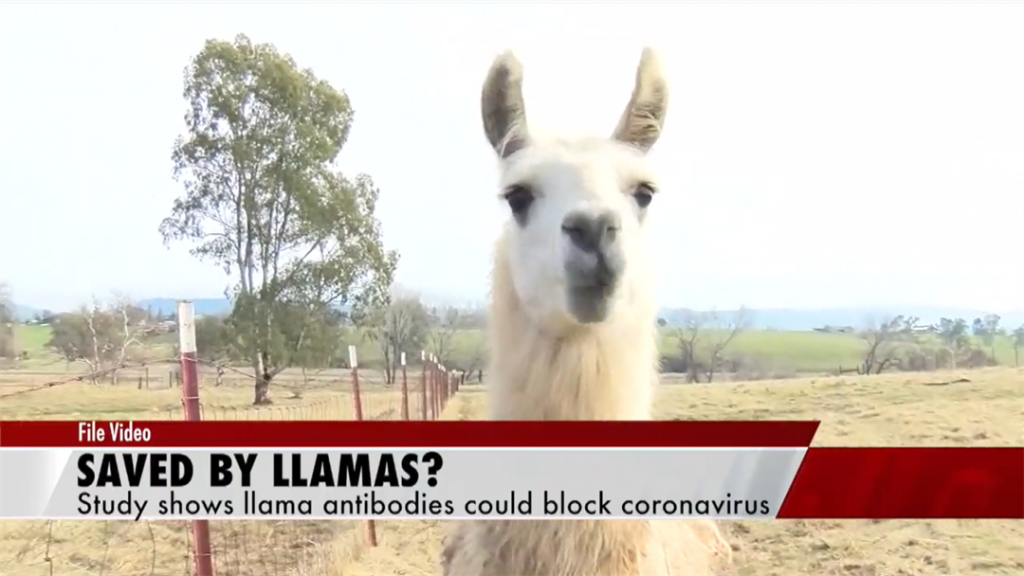
- Covid-19 treatment highlights: There is a hope that llamas will become Coronavirus heroes. Meanwhile, doctors are cloning antibodies for new treatment options, New York is launching free antibody tests, the FDA approves both saliva testing and CRISPR gene-editing, and triple combination therapy shows promise for COVID-19 patients with less severe illnesses. Masks are proven to help prevent the spread of COVID-19, and now you can transparently track your state’s actual Covid-19 progress here. An army of 100,000 contract tracers are needed to help the US reopen and Johns Hopkins Bloomberg School of Public Health is offering a free course to get you started.
Thank you for riding with us every week over the past two months. Based on the results of the survey, we will aim to produce content that is most relevant to our readers in the future.
As the ultimate sign of hope, I will be out on maternity leave soon, dedicating my attention to a brave little one born in these times. So if you have any follow up questions please follow up with my partner Abbey Lunney- abbey.lunney@harrisinsights.com running thought leadership and trends at Harris.
That’s it for now. 🙂 Stay safe, be well, and look out for the good news.
